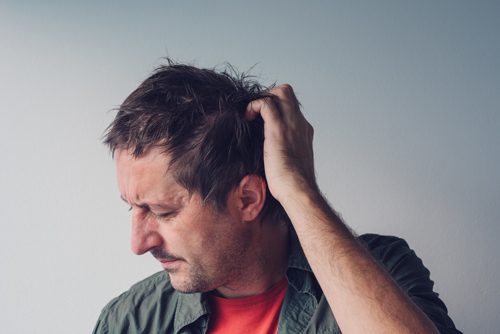An Overview
When a person experiences a blackout from drinking an excessive amount of alcohol, they do not necessarily pass out. Typically, the term “blackout” refers to the amnesia brought on by alcohol. During a blackout, the intoxicated individual is often fully conscious and able to engage in various activities, such as talking or walking. However, they will have no memory of what they did during the blackout period.
What Causes an Alcohol-Induced Blackout?
The most common cause of blackouts is a rapid rise in blood level concentration (BAC). A blackout normally occurs when the BAC reaches 0.14, or 14%, which is almost two times the legal limit. This is usually caused by binge-drinking a great amount of alcohol in a short period of time. A rapid rise in blood alcohol levels can also occur if the person is dehydrated or drinks on an empty stomach.
According to Live Science, a person can also suffer from milder forms of memory impairments called fragmentary blackouts. These types of blackouts are commonly known as “grayouts” or “brownouts.” When a person experiences a fragmentary blackout, they remember small bits of what occurred during the blackout period if they are given clues.
Are Alcohol-Induced Blackouts a Sign of Alcoholism?
In the past, blackouts were thought to be one of the three main indicators of alcoholism. Today it is understood that alcohol-induced blackouts are directly related to the rapid increase in blood alcohol levels. They are not the result of a substance use disorder or heavy drinking. If a person has a single alcohol-induced blackout, it means they drank too much one time. However, repeated blackouts or episodes of drunkenness are a good indication of an alcohol use disorder.
The Dangers of Alcohol-Induced Blackouts
Due to the high level of intoxication needed for a blackout to occur, psychological processes such as decision-making are highly impaired during this time. When a person blacks out, they are able to continue to engage in activities and hold conversations as they normally would. Because they can remember what happened before the blackout, they are able to carry on their conversations and recall stories from earlier while they were intoxicated.
Not everyone appears the same during a blackout; it depends on how much they drank and how impaired their brain functions are. One person may appear very drunk, and another may appear to be barely intoxicated. Blackouts are extremely dangerous since the person often engages in dangerous or risky behaviors that can lead to harmful or possibly life-threatening situations.
Examples of these behaviors include:
- Attempting to drive, possibly resulting in recklessness or an accident
- Having unwanted, unprotected, or forced sexual experiences
- Using drugs
- Taking part in unlawful actions such as theft, destroying property, or vandalism
- Spending an excessive amount of money
People who have frequent blackouts are likely to develop a higher tolerance to alcohol. If a person has developed a higher tolerance to alcohol, their BAC must be 0.2 or higher for a blackout to occur. Blood alcohol content greater than 0.2 is extremely dangerous, since a BAC of 0.3 is the level when possible fatal alcohol poisoning begins.
According to an article from the National Institute on Alcohol Abuse and Alcoholism, the brain’s signal that controls the gag reflex is delayed by alcohol. A person that has overdosed on alcohol or blacked out could choke, suffocate, and die if they vomit while they are sleeping because of the loss of the gag reflex control.
Recognizing a Blackout – Signs and Symptoms
Since a person is likely to conduct themselves in a normal manner, it is often difficult to tell when they are experiencing a blackout. Here are a few things to watch for that may indicate a blackout:
- The person has consumed a large amount of alcohol in a short amount of time, or they have been drinking alcohol without drinking water or eating.
- They often repeat themselves while having a conversation or are unable to follow the thread of a conversation.
- They do not seem to be concerned about the feelings or thoughts of the people around them.
- They are distracted easily.
- They do not remember what they are doing or where they are.
- They take part in dangerous or risky behaviors that they would not participate in if they were sober or slightly tipsy.
Help is Available
If you or a loved one experiences alcohol-induced blackouts or suffers from a substance use disorder, there is help available. The professional staff at English Mountain Recovery, located in the heart of the Smoky Mountains in Tennessee, can answer your questions and guide you along your journey to achieving a clean and sober life.
 To learn more about programs offered at English Mountain Recovery, alcohol rehab near Knoxville, TN, call and speak with someone today at (877) 615-8569. We are ready to help you or your loved one recover.
To learn more about programs offered at English Mountain Recovery, alcohol rehab near Knoxville, TN, call and speak with someone today at (877) 615-8569. We are ready to help you or your loved one recover.About the Author: 
Terry Hurley is a retired educational professional and freelance writer with more than fifty years of experience. A former reading specialist and learning center director, Terry loved her years working with children in the educational field. She has written extensively for print and online publications specializing in education and health issues. For the last six years, her writing focus has been on addiction and mental health issues.





